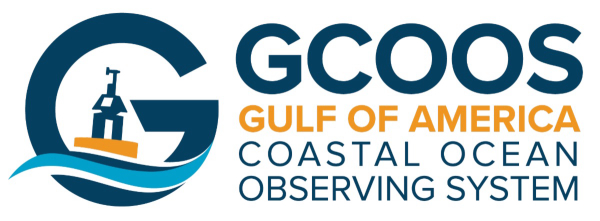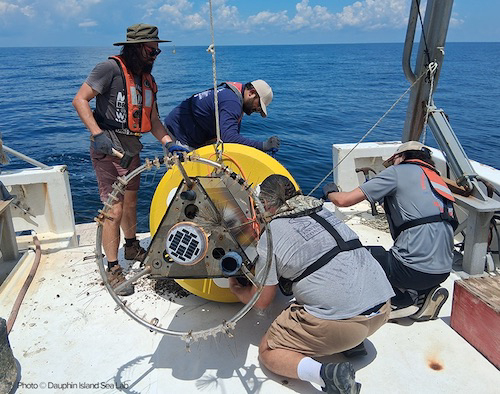

|
The Gulf of America Coastal Ocean Observing System (GCOOS) is preparing its next five-year proposal to NOAA’s Integrated Ocean Observing System (IOOS) for the funding period July 2026-June 2031 and is inviting project ideas from GCOOS members and stakeholders across the Gulf region.
GCOOS, based in the Department of Oceanography at Texas A&M University, is one of 11 regional observing networks under the IOOS banner across the U.S. The nonprofit organization is responsible for developing a network of business leaders, marine scientists, resource managers, governmental and non-governmental organizations and other stakeholder groups that collect and combine their data to provide timely information about our oceans — similar to the information gathered by the National Weather Service to develop weather forecasts.
For 20 years, GCOOS has been providing on-demand information about the Gulf’s coastal and open-ocean waters that is accurate, reliable and benefits people, ecosystems and the economy and is always seeking new ways to ensure that reliable data reaches the end-users who need it.
Ideas for the 2026 proposal may span public, private, academic, and nonprofit sectors for inclusion in the single, coordinated proposal being developed and submitted by GCOOS. Although NOAA has not released the official funding opportunity yet, GCOOS is moving to start the proposal preparation now.
?Projects selected will help GCOOS advance implementation of the organization's Strategic Plan 2020-2025 and Addendum to the Build-out Plan, which help to develop and strengthen a robust and resilient ocean observing network throughout the Gulf of America.
Each LOI will undergo a formal review to determine its suitability for integration into the full proposal. Project teams selected for inclusion will be notified and provided ample time to prepare and submit the required official documentation, including approved budget, SF424A budget form, budget justification, and letters of support, through their institutional offices following NOAA's release of the official request for applications.
LOI Timeline*
*Please note that the timeline is subject to change
LOI Details & Submission Process
GCOOS is seeking projects that align with our Strategic Plan and focus on observing platforms and sensors, modeling and education and outreach.
About GCOOS
GCOOS is one of 11 regional associations that partner with the U.S. Integrated Ocean Observing System, U.S. IOOS®, a federal, regional, private sector partnership committed to tracking, predicting, managing and adapting to changes in our ocean, coastal and Great Lakes environments. GCOOS data is certified by the National Oceanic and Atmospheric Administration (NOAA), meaning that the organization meets rigorous standards for data gathering and management practices and operates transparently and with stakeholder guidance to help determine Gulf system priorities. Based within the Department of Oceanography (OCNG) at Texas A&M University (TAMU) in College Station, GCOOS has 36 principal investigators and 62 partners providing data from 1,730 sensors via 447 regional and federal stations. GCOOS has 181 institutional and individual members. www.GCOOS.org